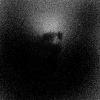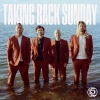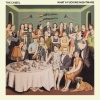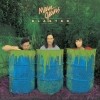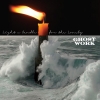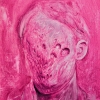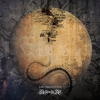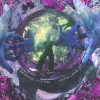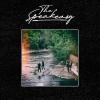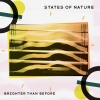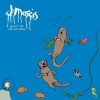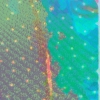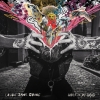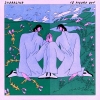Gig Reviews
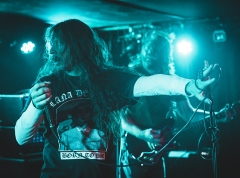
Cult Leader
Stengade, Copenhagen, DEN - 15/4
Album Reviews
City Of Ships
Previous Nextauthor PP date 21/06/11
Today marks the second time in two years that City Of Ships are paying a visit to Danish soil, or Copenhagen to be exact, and given that they are releasing a new album in a couple of week's time, it presented a perfect opportunity to chat a little bit about the band and find out what they are all about. Turns out that they are constantly playing to just 40-50 people a night, and having to make difficult decisions regarding future tours and recording new output because of the financial issues that they bring, which is surprising considering the sheer strength and quality of their recorded output. Come on people, support bands like City Of Ships, and the music industry would be a much better place than it is. Read on for the interview that took place on a sunny late afternoon outside KB18 together with a couple of venue-sponsored beers.
RF.net: So how has the reception from the crowd been for you guys.
Eric: Well, we've been discussing that even at the small shows, people are generally responding well, and even when there's maybe 15 people in the room, we're still selling more merch than we should be considering that, so that's cool. We've had kind of an issue with no local support on some of the show, which is really strange for us coming from the US. Every single place that we play, it's written in stone that there's gonna be at least one local band, if not two, helping the draw especially on a week night when it's slow, you know? Other than that, everything's been good.
Eric: It's a pleasure for us. We have girlfriends all three of us in the band, and they're really patient, and we love them for that, they're great. But yeah, it sucks man, to not see your family for that long and like I mentioned to you, we haven't had internet access every day so trying to keep in touch with what's going on at home is a hassle. Even with laptops and Skype and all this, you start to get a little disconnected and numb after a while, and every day just sort of blurs into the next. But it's a pleasure, anyway.
RF.net: So you guys have any funny stories yet from this tour?
Rob: I'm sure we do, let's think. Ummm....I've been blindingly drunk almost every single night, I don't know if that's a funny story or not, but....it's actually been pretty average considering the lifestyle that it is anyway. Just driving for eight hours in the van every day and hanging out in a tiny concrete room in these cities that are older than our entire country, and then not seeing them, then playing.
Eric: I got a throat infection right after we arrived in Europe. I've never been to the hospital outside of the States. I don't go to the hospital in the States either because I don't have health insurance, but I got a fever, and my glands swelled, and my throat....so massive. I mean, you could see them coming out of the side of my head.
Rob: Wasn't the doctor visibly shaken when she looked into your throat?
Eric: Yeah so three days into this episode, we were rehearsing in Belgium before the tour, and finally decided to go see a doctor, and she opened my mouth, and her English wasn't very good, so she just goes: "wow" [all laugh] So that knocked me out for like four days, and I got an antibiotic, which was fine, I healed up pretty well, but it kind of sucked because we left home early with the express purpose to rehearse for the tour, and we just sat around with me being sick for four days straight. Fortunately we had a good host, this guy Davey from Belgium, a real sweetheart, took care of us through and through, but I think that's the funniest story. Now that I'm not sick anymore, it seems funny, I don't know.
Rob: It was so much fun that I decided to join.
Eric: That was that, it just made sense. Constants is an active band, they do a lot of stuff, so it kind of remains to be seen how the balance is going to work out, but they didn't have much planned for this summer so it allowed us to do this massive tour without much conflict. We wrote the record together, and the rest is...it's happening, we'll see.
Rob: Limp Bizkit!
Eric: Yeah, Limp Bizkit is a great example. Cause anybody can talk shit about them and it's fine. In an effort to piss off our driver the other day, we played a Limp Bizkit song in the van and we were all looking at each other like "what the fuck is a Limp Bizkit, how do you make a band that gets huge with that name, it's ridiculous".
RF.net: So if not Thrice, then who has influenced you? And what are some of your favorite bands right now?
Rob: That's hard to say. There's so many of them. We all have a very similar collection of absolute favorites, like I know we all love Engine Down, this band from Richmond in the US. A lot of bands from the 90s like Failure and Hum. Hum especially, we actually just recorded a cover song for the Hum tribute in the US. Obviously we have roots in a lot of bands from our respective areas, like I know a lot of Florida bands.
Eric: Yeah, I mean taking influence from where Andrew and I grew up around Florida. Hot Water Music and bands like that are really inspiring to us. Planes Mistaken For Stars was a huge band in our upbringing. Cursive...man, the list is pretty long. It's pretty clear listening to our older stuff especially that Isis and Pelican and bands like that are favorites of ours, although we're not trying to write songs that are quite so lengthy. You know, it's still music that we love and we listen to all the time. But yeah we're talking a lot about 90s alternative rock bands who never broke into the mainstream but to us are still dear. Swervedriver, a British band, My Bloody Valentine...anything that's really powerful and loud but retains melody. At the same time I say that but we're also listening to Meshuggah all the time, which is like anti-melody. They're playing the Ieperfest with us...well, we're playing with them.
Rob: We happen to be in the same town as them.
Eric: We get to see them for free, that's the idea [laughs]
Rob: Yeah, these guys would send me guitar demos that they would do, and then I would program drums on top of that, and send them back and forth..
Eric: Which was an interesting way to work. We've never done that before, and I have to admit I was a little nervous about it. It seemed inorganic to some extent, but so many people are doing it now, and we didn't really have a choice because we were too poor to get together for enough time to write a record old fashion style. But we're really happy with the result, so I think that it was a nice way to work. I don't think we'll do it again.
Eric: I think so, yeah, sort of trying to encapsulate our favorite parts of previous work in a more concise package.
Rob: Even down to the drum tones and the guitar tons, they're a little tighter and a little cleaner.
Eric: Yeah, We've got a wide variety of tones and textures on this one that we're really stoked on. Because "Look What God Did To Us" was written and then road-tested for a really lengthy US tour, this record is all...we wrote it, we worked it out live, and then we went into the studio the next week. So we just took advantage of that basically, and we let Andrew Schneider, the producer that we worked with, he had a lot of cool ideas in terms of different drum sounds or maybe an extra guitar amp in the mix or something like that. His knowledge of mics and compressors and stuff was so intense, it's mind-boggling for me. But we kind of let him go to town, and we went to town ourselves, just because we had the license to. We didn't have a full expectation of the live presentation of these songs, so it was actually a lot of fun because of that.
RF.net: You mentioned Schneider, who has worked with bans like Pelican, Cave In and of course many others. So how did you choose him as the producer and how was it to work with him?
Eric: We worked with him on the previous album. We made a short list of engineers and producers that we admired, and in the end we chose him because we felt like his ear for mixing at least in terms of what we were listening to in his output was just the best. To put it into words is difficult, but there was a particular night when we were driving away from a show, and the Pelican album that he did came on shuffle, and all of us in the van were just like "holy shit man, this is a massive sounding section of a song", and you could pick out any part that you want.
Rob: The extreme clarity he's able to pull out of what you lay on tape is unbelievable.
Eric: Out of a messy take, even. Yeah, he's really, really on top of it. So when we were going to figure out what we were gonna do for this record, we bounced around a lot of different ideas, but he expressed interest in working with us again, he had the window of time open that we were looking for. He actually bend over backward, put in some extra time for us that wasn't on the calendar. He's just a really dedicated guy. More interested in the creative side of recording than in making money or making the business out of it. That's a big thing for us, of course, because that's the whole story of this band. We're losing money all over the world, you know, so if someone else is like-minded, we're probably gonna get along [laughs]
RF.net: So do you think this one is going to be the City Of Ships breakthrough album?
Eric: The breakthrough album! [laughs] Yeah...I think we're way...I think we've pretty much given up on that as an idea. Having any expectations for what this band is gonna turn into is the last way to maintain any level of sanity at this point, I think, so we're just happy with what we did, so if people like it, fine. I mean, I hope they do, it would be nice to be playing to a hundred people instead of 40 or 50 on a night. But you know, that's all up to people. We did what we did and we're proud of it, so I guess that's the end.
Rob: We've been focused so much on getting this record done and doing this tour that...in general we're just not planning anything more than three months ahead. Especially financially, it's difficult to...
Eric: This is the problem, yeah. We're always like dancing on a dime trying to figure out how we're gonna pull off the next miracle in terms of getting on the next tour, paying for the next recording. Once we do it, it's just like "holy shit, we made it happen, lets take a breath". We're gonna do some US touring later this year, for sure. We're playing The Fest in Gainesville, that's confirmed, but we don't know who we're touring with, if anyone, it may be a headliner. [chuckles] Calling it a headliner in the US is a bit of a goof to be honest. But yeah, we'll definitely be touring. The record's gonna come out in July, so we'll have quite a bit of promotion to do for it, I'm sure, but after that, I guess we'll just see what happens in the new year. We're definitely already talking about new ideas for the next record, so that's kind of exciting, before anybody even hears the one that's done. But yeah, we'll spend some time writing, and keep touring, that's pretty much it.
 Twitter
Twitter Facebook
Facebook